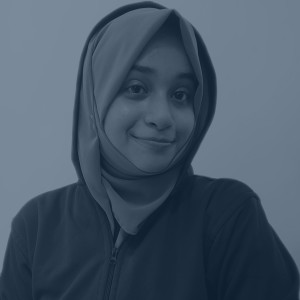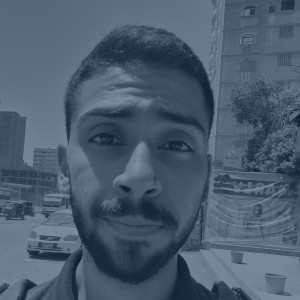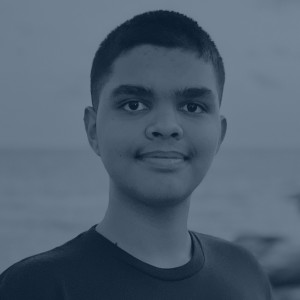Reeva Khokhar, 16
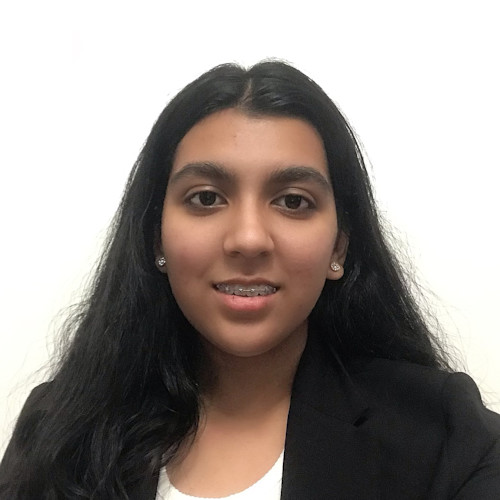
When she was young, Reeva Khokhar always enjoyed working on puzzles. Her desire to solve problems led her to computer science and coding, and she continues to use her technical capabilities to find solutions to issues large and small. Her impact on the hacking world is substantial, as is her commitment to the community.
Reeva got an early start in technology. In 6th grade, she attended an Introduction to Python, Graphics, and Animation workshop , and the results floored her. She says, “I simply could not believe that I was able to tell the computer what to do, and that is where my whole programming journey started.” From that point, she dove into learning new languages and gaining programming expertise.
She soon fell into web design and development, which let her combine her coding skill set with her creative and artistic talents. By 8th grade, she could already build complete web apps, incorporating front-end technology like HTML, CSS, and JS with back-end such as Python and SQL.
Her first hackathon, FutureHacks 2021, provided her the perfect chance to showcase and develop her talents. Going back to her puzzle-solving days, she thought of an issue that needed a solution: her grandmother had trouble reading the tiny print on medicine bottles. Reeva wanted to fix that. This decision showcased more than her tech abilities; it also demonstrated her compassion and desire to find solutions for others. She worked virtually with a partner in Indonesia, navigating a twelve hour time difference! The puzzle pieces started coming together, and the two figured out how to make it work, using machine learning and AI to create a functional app and winning Best Overall at the hackathon.
Her success at hackathons continued (she went on a 15-win streak in the summer of 2021), and so did her social and emotional growth. She turned from introvert to extrovert, learning to communicate more confidently. She says, “Presentations were my biggest fear. However, there was something about the hackathon and the presentation that made the words flow right out of me [...] in this hackathon, I was also able to overcome my fear of presentations.” She learned how to work collaboratively with community members around the globe, and gained inspiration in everything she does—all while still in high school.
She progressed in hackathons, challenging herself to do more. She entered the Yale CBIT hackathon, which included graduate students and PhDs, and she won the Audience Choice award. Her pitch was an app to prevent adverse drug reactions using machine learning, neural networks, data parsing, and several health APIs. This success sparked her next move: turning this app into a startup—MedLog. She says, “I began to realize that my true passion is actually in the intersection of technology and business.”She landed an internship and full scholarship from iStartValley, where she is developing MedLog. These successes increased her confidence even further, and her future in coding and pursuing the business aspects of tech look bright.
Giving back to the community that has done so much for her and finding solutions to support others have motivated Reeva. Her younger brother has special needs, so she developed an app called S.P.E.D. at Hydrangea Hacks to help students like him learn programming during the pandemic. She still devotes an hour and a half each week to teaching coding to special education students.
She also is very aware of the gender disparity in tech. She developed leadership skills during Major League Hacking (MLH) hackathons and used them to spearhead women empowerment initiatives in technology. She is a founding member of the Girls Who Code chapter at her high school, serves on the National Teen Advisory Board of Techgirlz, is starting a women-in-STEM podcast called TechBytes, and is organizing hackathons focused on women and non-binary participants like Superposition VI 2022.
To Reeva, puzzles have always been exciting and rewarding. She’s found new joy in solving social issues and tackling problems that those in her community face, starting with something as small as the fine print on Grandma’s medicine bottle.
Quick Facts
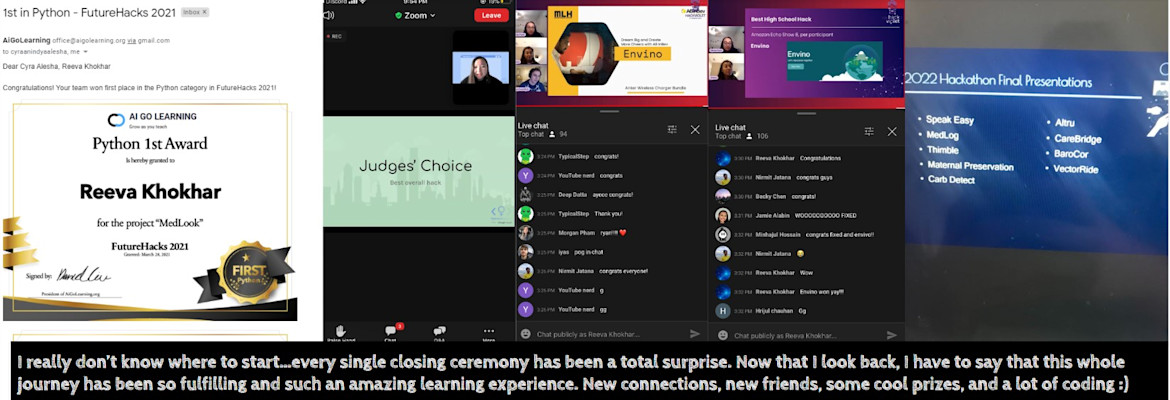
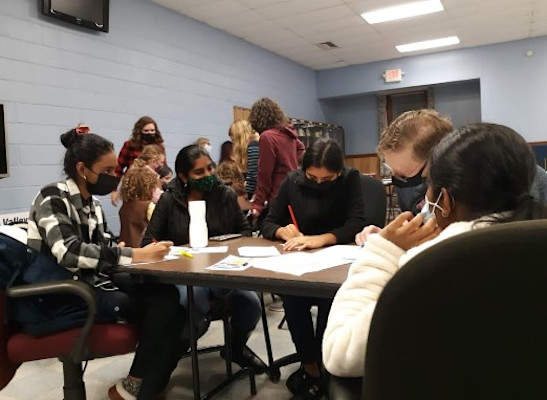
Reeva Khokhar, 16

When she was young, Reeva Khokhar always enjoyed working on puzzles. Her desire to solve problems led her to computer science and coding, and she continues to use her technical capabilities to find solutions to issues large and small. Her impact on the hacking world is substantial, as is her commitment to the community.
Reeva got an early start in technology. In 6th grade, she attended an Introduction to Python, Graphics, and Animation workshop , and the results floored her. She says, “I simply could not believe that I was able to tell the computer what to do, and that is where my whole programming journey started.” From that point, she dove into learning new languages and gaining programming expertise.
She soon fell into web design and development, which let her combine her coding skill set with her creative and artistic talents. By 8th grade, she could already build complete web apps, incorporating front-end technology like HTML, CSS, and JS with back-end such as Python and SQL.
Her first hackathon, FutureHacks 2021, provided her the perfect chance to showcase and develop her talents. Going back to her puzzle-solving days, she thought of an issue that needed a solution: her grandmother had trouble reading the tiny print on medicine bottles. Reeva wanted to fix that. This decision showcased more than her tech abilities; it also demonstrated her compassion and desire to find solutions for others. She worked virtually with a partner in Indonesia, navigating a twelve hour time difference! The puzzle pieces started coming together, and the two figured out how to make it work, using machine learning and AI to create a functional app and winning Best Overall at the hackathon.
Her success at hackathons continued (she went on a 15-win streak in the summer of 2021), and so did her social and emotional growth. She turned from introvert to extrovert, learning to communicate more confidently. She says, “Presentations were my biggest fear. However, there was something about the hackathon and the presentation that made the words flow right out of me [...] in this hackathon, I was also able to overcome my fear of presentations.” She learned how to work collaboratively with community members around the globe, and gained inspiration in everything she does—all while still in high school.
She progressed in hackathons, challenging herself to do more. She entered the Yale CBIT hackathon, which included graduate students and PhDs, and she won the Audience Choice award. Her pitch was an app to prevent adverse drug reactions using machine learning, neural networks, data parsing, and several health APIs. This success sparked her next move: turning this app into a startup—MedLog. She says, “I began to realize that my true passion is actually in the intersection of technology and business.”She landed an internship and full scholarship from iStartValley, where she is developing MedLog. These successes increased her confidence even further, and her future in coding and pursuing the business aspects of tech look bright.
Giving back to the community that has done so much for her and finding solutions to support others have motivated Reeva. Her younger brother has special needs, so she developed an app called S.P.E.D. at Hydrangea Hacks to help students like him learn programming during the pandemic. She still devotes an hour and a half each week to teaching coding to special education students.
She also is very aware of the gender disparity in tech. She developed leadership skills during Major League Hacking (MLH) hackathons and used them to spearhead women empowerment initiatives in technology. She is a founding member of the Girls Who Code chapter at her high school, serves on the National Teen Advisory Board of Techgirlz, is starting a women-in-STEM podcast called TechBytes, and is organizing hackathons focused on women and non-binary participants like Superposition VI 2022.
To Reeva, puzzles have always been exciting and rewarding. She’s found new joy in solving social issues and tackling problems that those in her community face, starting with something as small as the fine print on Grandma’s medicine bottle.
Quick Facts


